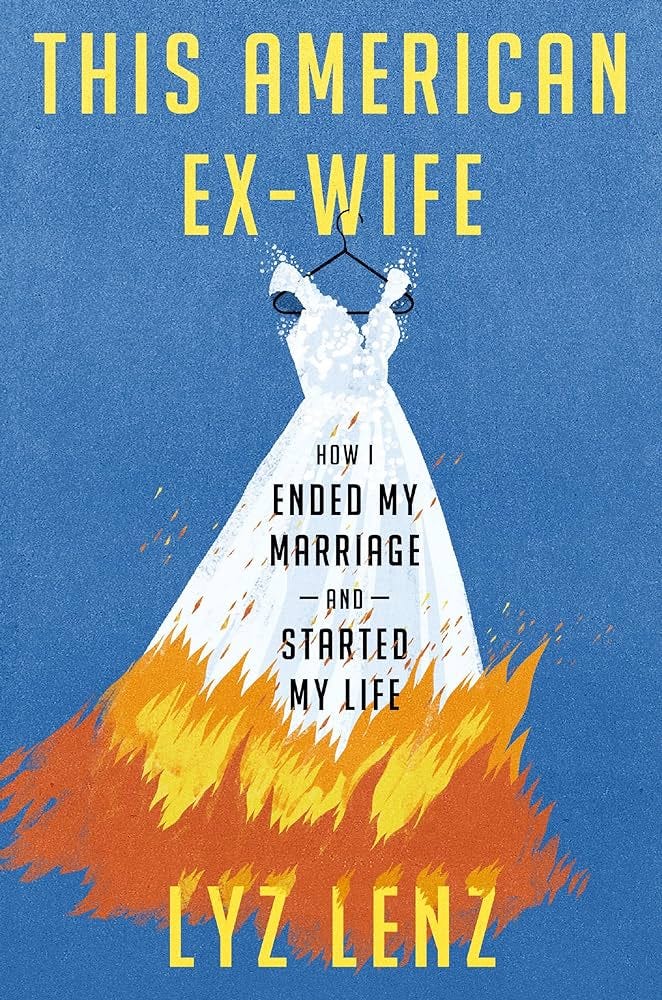When Love and Writing Mix (Or Don't)
Two Midwest writers on prioritizing their creative lives after marriage
When packing for my honeymoon this past February, the last item to check off the list was what I would consider the most important: my vacation read.
My husband had flown to New Orleans ahead of me for a work conference and whatever book I chose needed to keep me occupied as I made my way to the bayou on my own. So I grabbed a memoir I had been itching to open, arguably the strangest choice to make as I embarked on a trip to celebrate the beginning of what would hopefully be a long and happy marriage built on love and trust and kindness—Maggie Smith’s memoir on divorce.
is a poet and writer based out of Columbus, Ohio, where she was born and raised. Her New York Times bestselling memoir, “You Could Make This Place Beautiful,” depicts her journey to try to make sense of the ending of her marriage.It’s a uniquely poetic memoir, with vividly emotional language and a symbolic formal structure that plays on the elements of story, with sections such as “A Note on Character” and “A Note on Plot.” Smith is known for her deeply thoughtful poetry that often centers on her life with her children, so it’s not surprising she was able to craft a loving prose work about her family with such rhythm and insight.
Smith’s marriage was a story she understood until suddenly she did not—familiar characters, a wife-husband-son-daughter American dream combo, a house in a Midwest suburb and a precious adopted mutt. Then her husband took the narrative into a plot twist, no foreshadowing, the inciting incident a note to an unknown lover found in her husband’s bag, narrative action replete with familial strife leading to the climax—a new life without her husband, a perpetual learning of how to be herself by herself. She captures this undoing in vignettes and short scenes, notes on the elements of her story she is still trying to understand. “The Finder didn’t lose the future, only her knowledge about it. She lost the narrative. The Finder stopped knowing how to tell herself the story of her life.”
I think back to moments when I’m stuck in a draft of writing, boxed into a place I don’t know how to interpret. The helplessness of feeling your art on the other side of a brick wall. There is power found in the flow of words and fragility when it is blocked.
When Smith lost her narrative, it was because of the way her husband took it out of her hands. She writes that this is not a “story of a good wife and a bad husband…[but] a story of two human beings who committed to each other very young and didn’t survive one another’s changes.”
Her husband changed from the boy she met in a creative writing workshop into a career-driven lawyer who isolated himself from his wife’s writing success. The distance began when Smith’s poem, “Good Bones,” went viral in 2015, and her sudden notoriety seemed threatening. Trips to teach became times her husband had to “cover for her” at home. While the family was expected to accept his frequent business trips, on which he began cheating, he treated her writing work as a hobby, a disruption to his way of life.
I read this while on a wonderful trip with my wonderful husband and thought a lot about how and why we make the choices we do when it comes to how we treat our loved ones.
I’m not one to let things go and see where they take me—it’s difficult enough to give in to that inclination in my writing, but I have an innate fear of losing control of my personal life. I live by intention. Especially when it comes to something as important as my marriage. And even though I know marriage is deeply personal and unique to each couple, I can’t help but search for guidance from others on how to build mine to last.
This search led me to Smith’s memoir, but also to Beaverdale Books last month for a book signing
Lenz, where I raised my hand to ask a question at an author event for the first time ever.“I just got married this past September,” I began to a crowd of laughs. Lenz was there to promote her New York Times bestselling book, “This American Ex-Wife: How I Ended my Marriage and Started my Life,” a memoir on the dissolution of her marriage and a look into the unequal foundation of the institution of marriage itself.
So, the laughs didn’t surprise me. Lenz lives in Cedar Rapids, Iowa, and there’s a familiarity between both Midwesterners and writers. Combine the two and I felt unabashedly safe enough to take my search for guidance directly to the source.
“What advice would you have for someone like me, at the beginning of her marriage, who wants to prevent these inequalities from establishing?”
During the prior conversation around the book, moderated by fellow IWC member
, Lenz was forthright about her disdain for what marriage has done to not only her, but millions of women caught in the patriarchal subjugation historically inherent to the institution. Her own marriage story is braided with a sociological look into how cisgender, heterosexual women experience marriage. She cited statistics around the number of married women who experience domestic abuse, studies indicating that women are consistently more likely to carry the burden of domestic labor in the home, even if they make more money than their husbands.At one point, she said, “Marriage is a system built on inequality, and I want to wreck it. I don’t want to talk about it gently—I want to light that bitch on fire.”
I braced myself for some sort of insistence that I run far away from what she just spent an entire memoir disparaging, but Lenz’s eyes told me she understood where I was at—this big life decision made, a hopeful eye toward the future and a deep belief in the love I shared with my partner. The fear of what could go wrong and everything I would do to make sure we avoided it.
With sincerity, she offered to me what she wished she had known:
“Have the conversations about the systems operating in your marriage, and fight to make sure you get to pursue your own happiness.”
I’d later understand exactly where she was coming from as I read about the small moments in her marriage that built up to its ruinous end—her voice ignored, her writing work belittled, the expectation that she would care for her house and their children with very little help and even less complaint. She writes about the day her marriage ended, beginning with her walking back into her home after a research trip for a previous book and finding a tipped over bag of trash that her husband had ignored. Just like the hundreds of bags of trash he had left in the same place over the course of their 11-year marriage, most of which she’d had to clean up herself.
When I got home that night after the reading, I laid in bed next to my husband and asked him if my writing ever bothered him, those nights spent in separate rooms when I’d ask him not to bother me or question my strange idiosyncrasies that helped me focus. I told him that if my writing career goes the way I hope, there will be times that I might need to be away from home and the children we’d like to have.
“I know,” he told me. “But we’re a team, and you love to write.”
The Midwest Creative is a proud member of the Iowa Writers Collaborative. Please consider a subscription to my colleagues’ work to support storytelling across the state of Iowa. All of these authors provide content for free, with paid subscription options. Pick one or more, and help sustain this movement.







Macey, your husband's description of the two of you being a team is spot on. As someone who has been married to my husband for over 50 years I can tell you he is absolutely right. Marriage is a team sport. If you have found someone who will always be on your team and will always have your back you have the right person. Marriage is not a perfect journey, but when you marry the right person you can face the good, the bad, and the downright ugly together and you will come out on the other side much stronger. Believe that!!